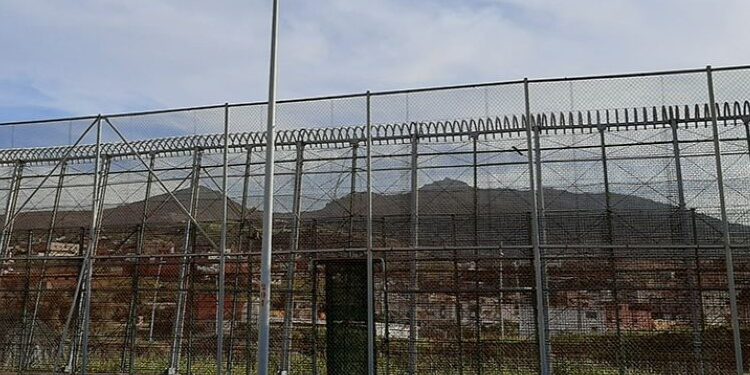The Diplomat
The Government of Pedro Sánchez chose yesterday to look the other way after the death of at least 23 people in Moroccan territory during a massive assault on the fence of Melilla, a human tragedy in which the great differences within the Executive have been staged again, in an all too evident way.
The Government resorted again yesterday to ambiguity in dealing with the massacre that took place last Friday at the Melilla fence (23 dead, according to the authorities; 37, according to the NGOs). On the same day of the events, Pedro Sanchez, from Brussels, was very sympathetic to the Moroccan authorities, whose Gendarmerie had “worked hard” to prevent the violent assault of about 2,000 illegal immigrants on the fence of Melilla, an assault that, in his opinion, “had been well resolved”. “We have to be aware that Morocco also suffers a problem of migratory pressure,” he added.
In the same vein, Sánchez assured yesterday, in an interview to La Vanguardia, that the Government “regrets the loss of human lives, in this case of desperate people who were looking for a better life and who are victims and instruments of mafias and criminals who organize violent actions against our border”. He also thanked again the Civil Guard, the National Police and the Moroccan Gendarmerie for their work and reiterated his usual message that Morocco “is a strategic partner for Spain” in terms of migration control and the fight against terrorism.
Isabel Rodríguez silences Irene Montero
The Government spokeswoman, Isabel Rodríguez, also declared yesterday in the press conference after the Council of Ministers that the Executive “deeply regrets these losses of human lives”, criticized “the mafias that traffic in human beings and provoke tragic situations” and praised the work of the State Security Forces and Corps and the “collaboration” of the Moroccan authorities.
However, the most significant of this press conference were the up to five occasions in which the spokeswoman prevented the intervention of the Minister of Equality, Irene Montero (of Unidas Podemos), after questions that had been expressly put to her in relation to the Melilla fence -including a question about the position of the ministers of her party regarding the position of Sánchez-. “I will answer all the questions”, Rodríguez insisted on each occasion. Moncloa sources later explained to the media that the aim of this attitude of the spokeswoman was to respect the working rules of the Council of Ministers.
Podemos, PP and PSOE
Precisely, Unidas Podemos, minority partner in the Government of Pedro Sanchez, yesterday registered a Proposition not of Law in the Congress of Deputies to open, immediately, an independent investigation into the human tragedy of Melilla and to derive “the corresponding political and criminal responsibilities in collaboration with the diplomatic delegations of the European Union present in Moroccan territory”. “Spain has to be at the forefront of the defense of human rights. That is why we have presented an initiative for an independent investigation”, the spokesman of the parliamentary group, Pablo Echenique, declared to the press.
For its part, the PP has demanded the urgent appearance of Pedro Sanchez in the Congress to explain “the serious events” in Melilla and to specify the “state of the policy of cooperation with Morocco in security policy” and clarify the circumstances surrounding this event. “In no case” can it be affirmed that the outcome is “well resolved”, warned the PP Vice-Secretary of Institutional Affairs, Esteban González Pons, who asked the President of the Government to “retract” these words because “no death in these circumstances can be indifferent”.
Esquerra Republicana, Bildu, Más País-Equo, Compromís and PDeCAT, parliamentary allies of the Government, have also requested the appearance of Pedro Sánchez and the Minister of the Interior, Fernando Grande Marlaska, in the Plenary of Congress.
On the other hand, the spokesman of the Federal Executive of the PSOE, Felipe Sicilia, repeated, word for word, the position of the Government. During a press conference in Ferraz, Sicilia insisted that the deaths in Melilla were caused by “a whole network” that “put the lives” of the migrants at risk, highlighted the “important” role of the State Security Forces and Corps in collaboration with the Moroccan Gendarmerie to “try to stop those mafias that are promoting the assault on the fence” and dodged all questions regarding whether his party would agree to collaborate with humanitarian associations in the area in the investigation of the facts or to ask Morocco for explanations for this tragedy.
The European Commission assured yesterday that it is in contact with the Moroccan authorities to “understand the details” of the tragedy, but avoided asking Rabat for an independent investigation and did not criticize the Moroccan authorities for having started to bury the bodies of the victims without waiting for an investigation. The African Union yesterday expressed its concern over the “violent and degrading treatment” of the migrants and called for an “immediate” investigation into the events.
For its part, the Spanish Commission for Refugee Aid (CEAR) denounced the “indiscriminate use of violence” to manage migration and control borders and “thus prevent people who could be eligible for international protection” from arriving in Spanish territory. “Among the people identified are many Sudanese, coming from a country suffering an armed conflict, and who have been prevented from legally and safely accessing the office set up in Melilla to be able to apply for asylum,” he denounced. “This is the cost of externalizing borders and putting the responsibility of controlling them in the hands of a country that does not respect human rights, such as Morocco,” declared Estrella Galán, director general of CEAR.







